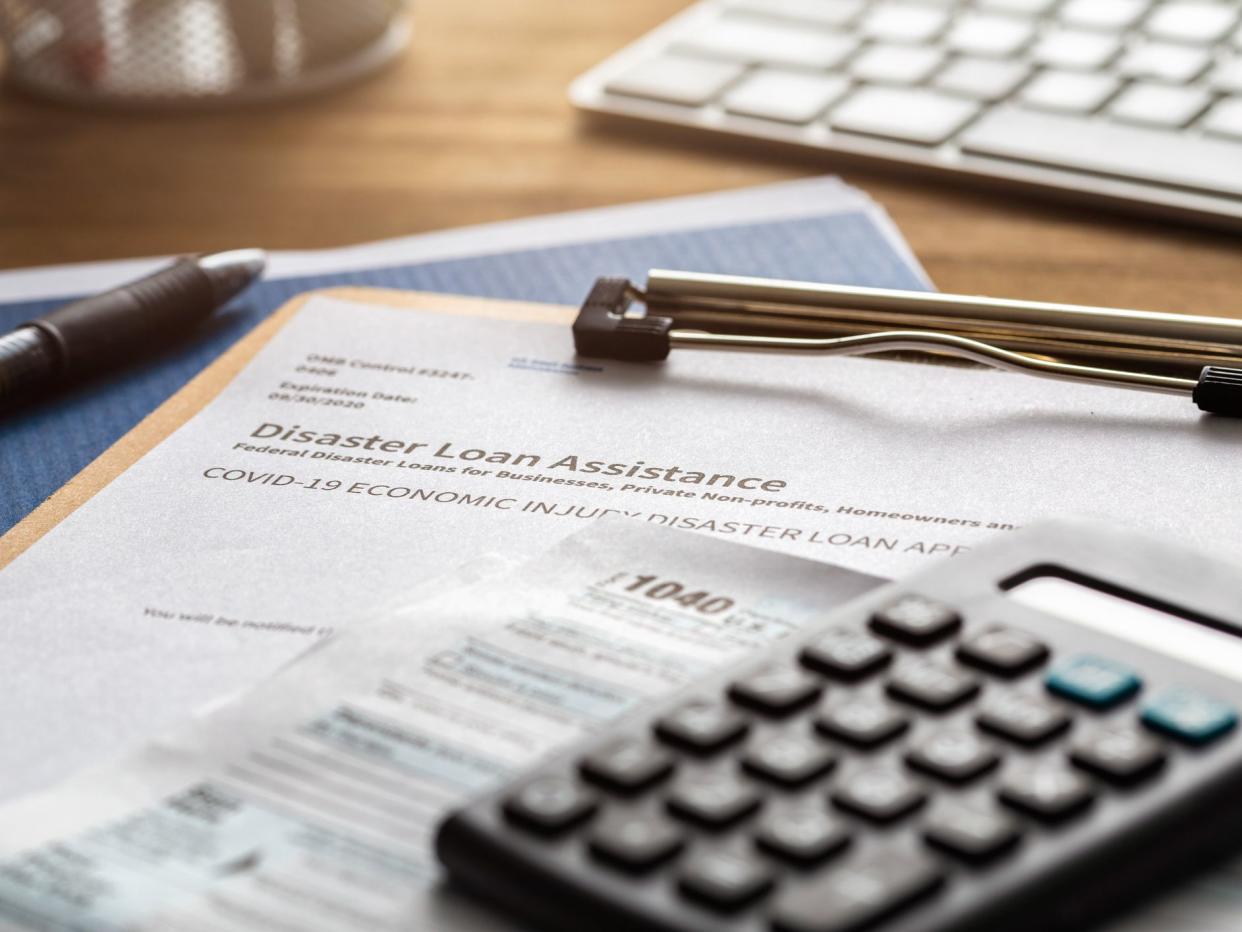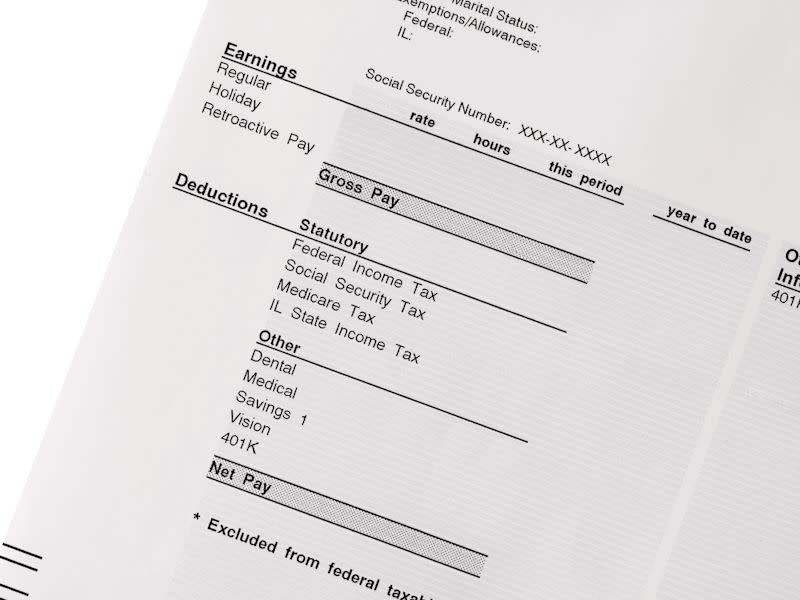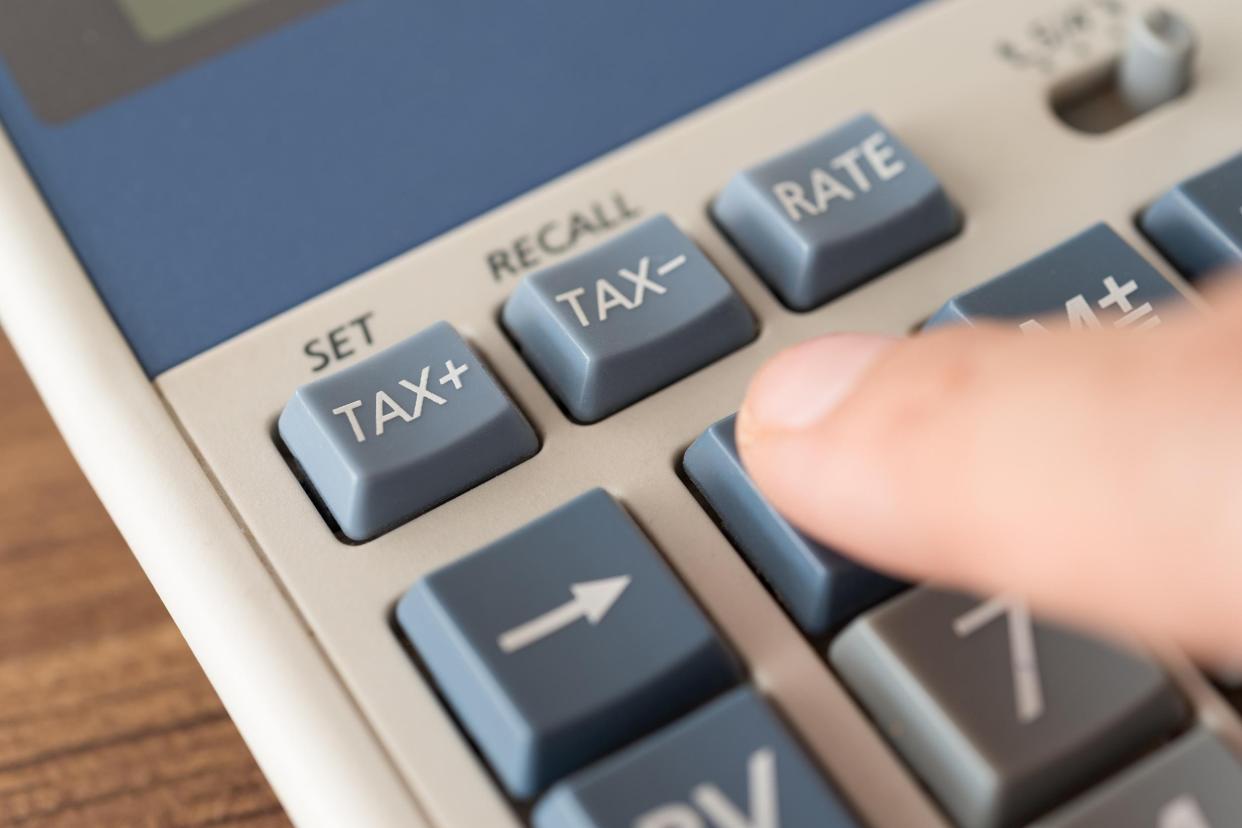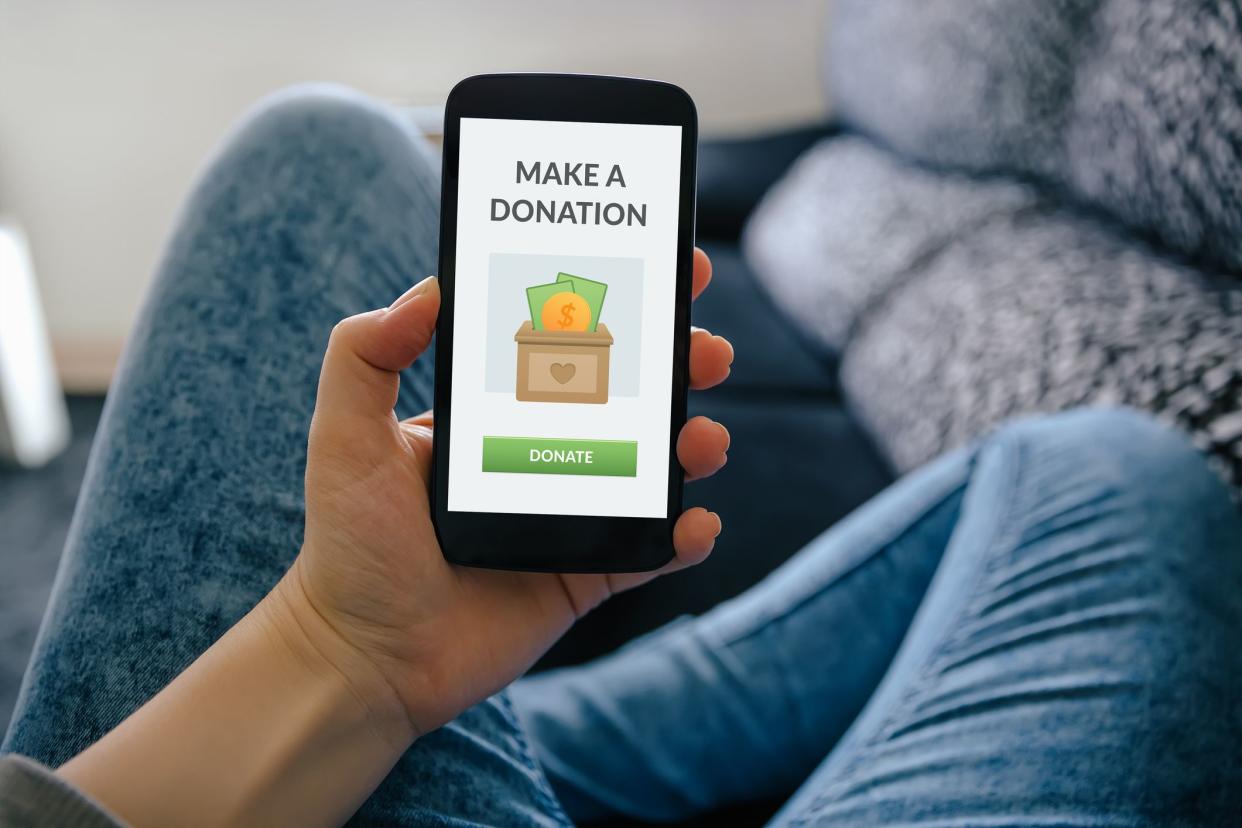21 Financial Lifelines to Help Small Businesses Stay Afloat

Small-Business Survival
When surveyed by the U.S. Census Bureau in mid-June, more than 82% of small-business owners said the coronavirus crisis had a moderate to large negative effect on their business. That's the bad news. The good news is that the government and many in the private sector have mobilized to help with loans, grants, and other forms of financial assistance to keep America's small businesses afloat. We also talked to small-business owners to get their take on other ways that small businesses can steer through this crisis. (Find out how Cash-Based Businesses Must Change to Survive in the COVID-19 Era.)
Related: 14 Industries That Have Been Hit Hardest by the Pandemic

Paycheck Protection Program (PPP) Loans
This program, recently extended past its original end-of-June deadline, forgives loans in which "all employees are kept on the payroll for eight weeks and the money is used for payroll, rent, mortgage interest, or utilities." The program provides loans 2.5 times a business's average monthly payroll costs (excluding pay in excess of $100,000 per employee), up to $10 million. For a list of PPP loan FAQs, click here. Small businesses can now apply for the PPP program's remaining $130 billion or so of available funds until Aug. 8.
Looking for some inspiration? Check out 24 Successful Businesses Launched During Economic Downturns

Economic Injury Disaster Loans (EIDLs)
"The good news is that the SBA’s EIDL program remains active and — for a limited time, at least — is offering loan advances up to $10,000 for qualifying businesses," says Andrew Schrage, CEO of Money Crashers. "It’s not too late to apply for EIDL assistance, even if your business is slowly returning to normal." The Coronavirus Aid, Relief, and Economic Security (CARES) Act reopened and expanded this Small Business Administration (SBA) loan program, providing $60 billion in loan funds, and authorizing quickly paid advances — disbursed within three days — of $10,000 grants that don't need to be repaid. "We were able to get the Payroll Protection Plan (PPP) money as well as the Economic Injury Disaster Loan (EIDL) to help us stay afloat," says Ben Walker, CEO and founder of Transcription Outsourcing, LLC in Denver.
Related: Expert Tips to Grow Your Business Without Stressing Out

Payroll Tax Delay
This CARES Act provision allows employers, including small-business owners and even those not affected by COVID-19, to put off paying their portion of 2020 Social Security payroll taxes to the end of 2022. Those who receive PPP loans, however, are ineligible for this program.
Looking for more tax advice? Here are 40 Essential Tax Tips for Small-Business Owners

Federal Reserve Main Street Lending Program
Also part of the CARES Act, this recently launched program helps small and mid-sized businesses "that were in sound financial condition before the onset of the COVID-19 pandemic." The program has three loan types, and is available to any businesses with fewer than 15,000 employees or with annual revenue of less than $5 billion. Reports in late June, however, noted that this program was off to "a sluggish start," with few loans made and reports of "convoluted" guidance and "wary" banks. Hopefully, there's only room to go up from there.
Related: Top 15 Affordable Cities for Starting a Business

Express Bridge Loan (EBL) Pilot Program
The EBL program, which dates back to 2017, allows lenders in the SBA's Express Lender program to supply expedited interim loans of up to $25,000. In late March, this program's eligibility rules were expanded to include small businesses that have experienced financial loss due to COVID-19. The program expires on Sept. 30.

SBA's 7(a) Loans
This program provides loans of up to $5 million "for eligible small businesses within the U.S. States and its territories," according to the SBA's "Coronavirus (COVID-19): Small Business Guidance & Loan Resources" page. The funds can be used for many things, including working capital; expansion/renovation and new construction; equipment purchases of equipment, refinancing debt "for compelling reasons," and more.
Related: Sneeze Guards and Plexiglass Shields to Stay Safe at Work

Employee Retention Credit
Another part of the CARES Act intended to help small-business owners retain their employees, the Employee Retention Credit is a tax credit equal to half of the qualified wages — including qualified health plan expenses — paid to an employee between March 12, 2020, and Jan. 1, 2021. The cap on qualified wages that can be claimed is $10,000, which translates to a maximum, per-employee credit of $5,000.
Related: Jobs That Could Grow During the Pandemic and Recession

Express Loan Program
Separate from the EBL program, these 7(a) program-associated loans can be provided up to $350,000. Loan approval is up to a local lender, leaving the SBA out of the decision. The extra appeal of this type of loan is there is a turnaround time of 36 hours.

Other Loans
The above isn't an exhaustive list of available small-business loans. There are other types of 7(a) loans that small businesses could qualify for, as well as a number of COVID-19 specific loans announced by private lenders (and being tracked by the American Bankers Association).
Related: 18 Ways to Help Small Businesses Survive Right Now

Finding the Right Loan
Not sure which loan option is right for you? Services like the LocalFundingFinder, launched by Excelerate America, are intended "to help businesses quickly locate funding without spending hours on research." You can also visit the U.S. Chamber of Commerce's "Guide to Small Business COVID-19 Emergency Loans," which answers a lot of important questions about different types of loans in a simple format.

Check Local Relief Fund Availability
Schrage, of Money Crashers, notes that "many localities — bigger cities and counties, multi-county metro areas — have local relief funds administered by partnerships between local or national foundations and local governments." One example is the Seattle Foundation’s COVID-19 response fund. "It’s a clearinghouse of sorts for business and worker aid in the Seattle area, distributing money and other resources to those who need it most," Schrage says.
Relaated: 22 Essential Remote-Work Tools for Your Business

Other Financial Resources (like Facebook)
Knowing that loans are options can be heartening, but there are other financial assistance resources worth looking into, including some from unexpected sources. One example? Facebook has launched the Small Business Grants Program offering $100 million in "cash grants and ad credits" to COVID-19-disrupted businesses.
Related: Black-Owned Stores to Support in (Almost) Every State

Keep an Eye on Yelp
In March, Yelp announced that it would provide relief for primarily independent and local restaurants and bars impacted by coronavirus to the tune of more than $25 million. While the program has ended, it might be worth keeping an eye on to see if it resurfaces in some form.
Related: The One Thing Restaurants Wish You Would Do Before Ordering Delivery

Apply to The Red Backpack Fund
The CEO of Spanx, Sara Blakely, announced that she would team up with GlobalGiving in establishing The Red Backpack Fund, which will give $5,000 grants to at least 1,000 female-owned U.S. businesses. The application portal for the fund will be open July 6-13.
Related: 11 Careers Where Women Are Paid More Than Men

Consider a GoFundMe Donation Fund
Businesses can sign up to receive donations through this site to help get them through tough times. The site has also launched a Small Business Relief Fund (part of a larger Small Business Relief Initiative) that will provide microgrants to "qualifying small businesses negatively impacted by the COVID-19 pandemic."
Related: 20 Small Things You Can Do to Make a Big Difference in the Pandemic

Capitalize on Kiva's Expanded Program
This micro-lending site announced changes to its program for U.S. businesses in the wake of the coronavirus crisis, including larger loan amounts — up to $15,000 — expanded eligibility, and a longer grace period. Eligible borrowers can apply here.

Check Out Stand For Small
This site partners with companies like FedEx, Adobe, GoDaddy, Staples, and many more to offer discounts, tools, and expert advice on small-business success. It helps address small-business concerns like making expenses more manageable, creating a stronger online presence, developing successful teams, and more.
Related: Barbershops, Bars, and Other Small Businesses on Wheels

Network With Other Small-Business Owners
Not all helpful resources are financial, as Gerri Detweiler, education director for Nav, a company that matches small-business owners with financing options, notes. Nav, she notes, has a Facebook group "with more than 16,000 members discussing COVID-19 relief programs such as PPP and EIDL, and other financing resources and strategies. The group, Business Loan Insight Financing Hub - PPP, EIDL, sees members "helping each other understand how quickly loans are being approved as well as how to navigate potential pitfalls," Detweiler notes.

Join a Peer Group
Walker, of Transcription Outsourcing notes that he's a member "of a CEO peer group called YEC, and it has an extremely active private Facebook group where we can message each other and post anything we need help with. When you get 750+ business owners together in one place, it can be very powerful," he says, noting that it has "been very helpful for me personally and professionally during the last three months."
Related: COVID-19 Crisis: Ways to Help in All 50 States

Bookmark Resources
Sites like Human Interest, a San Francisco-based full-service 401(k) provider for small and medium-sized businesses, have been keeping a regularly updated list of COVID-19-related resources for small-business owners and employees. There are also resources at sites like the U.S. Chamber of Commerce, which has tools like a "State-by-State Guide to Coronavirus Financial Assistance" and a "Coronavirus Small Business Guide."

Finally, Don't Be Afraid to Pivot
Alicia Ward, marketing manager for Canada-based See Sight Tours noted that when her business was "drastically affected" by COVID-19, "it basically became a question of what else can we use our existing assets for (tour vans) and what else can we train our employees to do." For that reason, the company went from "operating small-group tours to doing package deliveries. Through this method, we were able to continue operations for the past few months without laying off any employees."
Related: 19 Small Businesses You Can Start With Less Than $1,000
